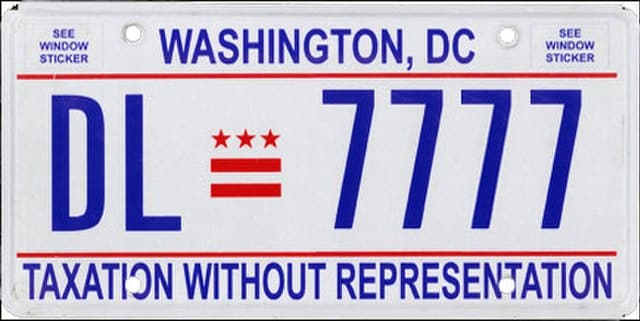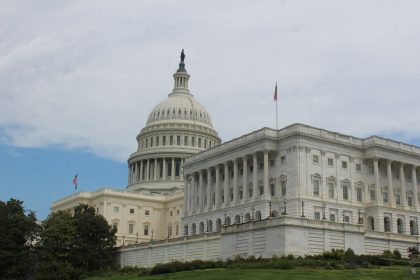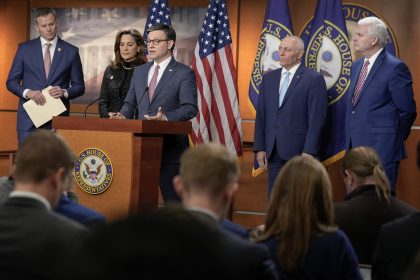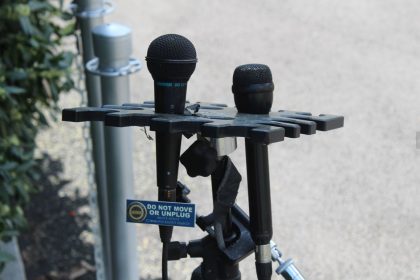Washington, D.C., One Step Closer to Statehood

WASHINGTON — The House of Representatives passed a bill Thursday to make the District of Columbia the 51st U.S. state at a time political support for the legislation is the strongest it has ever been.
The bill, entitled H.R. 51, now heads to the Senate, where Republicans already are pledging tough opposition.
It passed in the House by a 216-208 margin along party lines, which surprised no one since the proposal is likely to give Democrats more seats in Congress from the predominantly Democratic District of Columbia.
The same statehood proposal passed in the House last year but never made it through the Republican-controlled Senate.
Now Democrats control both the House and Senate as well as the presidency, leaving Republicans no viable option for blocking the statehood measure but a filibuster. A filibuster allows any one senator to block a vote by continuing to speak against a measure until time runs out for the vote, sometimes requiring all day and all night sessions.
The filibuster can be halted only if at least 60 senators vote to end it, which would be difficult with the nearly even split between Senate Republicans and Democrats.
Among statehood supporters is the Biden administration, which said in a statement Tuesday, “The administration strongly supports H.R. 51, the Washington, D.C. Admission Act. For far too long, the more than 700,000 people of Washington, D.C., have been deprived of full representation in the U.S. Congress. This taxation without representation and denial of self-governance is an affront to the democratic values on which our nation was founded.”
If the bill wins approval, the District of Columbia would be renamed the State of Washington, Commonwealth of Douglass. The “Douglass” refers to abolitionist and author Frederick Douglass, who was a Washington, D.C., resident.
The federal government’s property would shrink to a two-mile-square area that encompasses government buildings such as the Capitol and the White House. The rest of the District of Columbia would consist primarily of residential and commercial areas.
H.R. 51 was introduced by Delegate Eleanor Holmes-Norton, the District’s Democratic non-voting member of Congress.
She has described the District as a city of second-class, heavily Black citizens who lack a voice in the nation’s laws, despite having a population bigger than the states of Wyoming and Vermont. The U.S. Census Bureau reports that 46% of the District’s 712,000 residents are Black.
During a speech on the floor of the House Thursday, Holmes-Norton said, “This country was founded on the principles of no taxation without representation and consent of the governed, but D.C. residents are taxed without representation and cannot consent to the laws under which they, as American citizens, must live.”
She mentioned that in a 2016 referendum, 86% of Washington, D.C., residents voted for statehood.
However, Republicans describe the statehood dispute differently. Rather than a right to representation issue, they say H.R. 51 is a power grab by Democrats.
House Minority Whip Steve Scalise, R-La., said this week that District of Columbia statehood is unconstitutional.
“The Founding Fathers intended for D.C. to be a city independent of any one state and carefully crafted the Constitution so the seat of the federal government would not be within a state,” Scalise said in a memo.
He predicted financial collapse for the proposed 51st state if it removes itself from many of the federal subsidies it receives now. He also said the new state might exert too much influence over Congress.
“Democrats’ partisan push for D.C. statehood is irresponsible and represents exactly what the Founding Fathers sought to guard against when establishing the seat of the federal government,” Scalise wrote.
Republicans from states with small populations said stronger Democratic representation in Congress from the new state would lessen the power of their votes.
“It would dilute [Montana’s] voice and empower the Left to fundamentally change our nation for generations,” said Sen. Steve Daines, R-Mont.
























